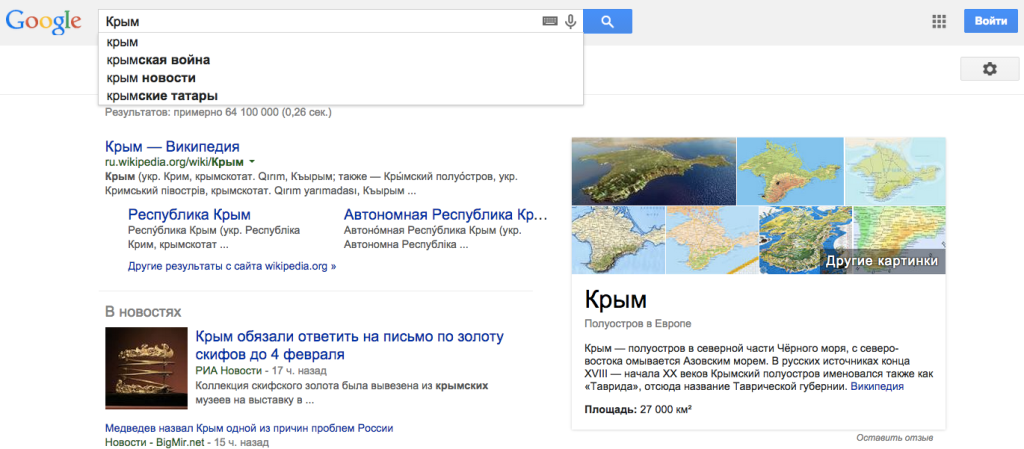Yet more developments around how U.S. sanctions on Crimea, in retaliation against Russia’s annexation by Russia, are being adopted by tech companies: Google is the latest to start complying with the orders to block import and export of tech products and services, among other things. According to multiple reports out of Russia, Google has now started to block AdSense and AdWords accounts in the region, and from February 1 it will also cease Google Play services, but it will continue to allow access to free Web-based services like Google Search, Google+, Gmail and Maps.
“Sanctions have recently been imposed on Crimea by the US and the EU. We are complying with them,” a Google spokesperson confirmed to TechCrunch.
The move comes after Apple expanded its own implementation of the sanctions from developers to products and services this week, and PayPal also added its name to the list yesterday. Other tech companies have included Valve cutting off Steam services in the country.
In a way the Google block is a bigger deal than Apple’s, considering that Android devices are far more prevalent among users, and Google is a key player in other web services. It’s also come up more than once against authorities in restrictive countries concerned about what kind of content is hosted and found through its services.
While Google has yet to specify to us which services are impacted, Russian press reports that Google is initially cutting off paid services, specifically B2B products like AdSense and AdWords. And even if Google did decide to circumvent U.S. laws (which it is not) it wouldn’t be able to collect money for services, since most international banks have now stopped payments into and out of the country. “Google’s prohibited from providing paid services in the Crimea,” a source at Google told Lenta.ru. “In addition, Google cannot make payments to anyone in the Crimea. It is now technically impossible, as almost all international banks have ceased to make payments,.”
Later the block will extend to apps via Google Play, but search, maps and Gmail will not be affected.
The Russian agency ITAR-TASS reports that Google will be ending Google Play services — both paid and free — in the region from February 1, as they fall under the restrictions on the import and export of services. “From February 1, we will start to limit access to apps in Google Play, since loading applications can be considered exports. Access will continue to free services Google, such as search, Gmail and Google Maps,” a Google source told the agency.
The backstory here is that Crimea, a peninsula with less than 2 million residents, is effectively a pawn in a chess game between much bigger powers, the U.S. and Russia.
Tech companies are cutting off business with Crimea as a result of sanctions that the U.S. first published on December 19, 2014, in line with a similar move from the European Union.
From my update yesterday on Apple’s moves:
The U.S and the EU both instituted the economic blocks to exert pressure on Russia, which annexed Crimea in March, 2014, as part of its ongoing conflict with Ukraine. The U.S. and Europe support Ukraine in that conflict and therefore oppose Russia’s annexation move.
The U.S. order signed by President Obama covers technology specifically alongside other goods and services, and calls for blocks of the importation into the U.S. “directly or indirectly, of any goods, services, or technology from the Crimea region of Ukraine”; and “the exportation, reexportation, sale, or supply, directly or indirectly, from the United States, or by a United States person, wherever located, of any goods, services, or technology to the Crimea region of Ukraine”. Other areas covered in the order include investments and immigration.
While the U.S. is trying to use economic sanctions as a way of getting Russia to budge on Crimea and its overall position against Ukraine, there remains a lingering worry among some that I’ve spoken to that this conflict could potentially spill into a wider conflict with Russia itself.
In the meantime, it’s a particularly frustrating turn of events, given that the people suffering the most are not Russia’s power players, but the people in Crimea, who have otherwise been trying to tap into the rush for engineering talent from Eastern Europe by building their own fledgling tech ecosystem.

